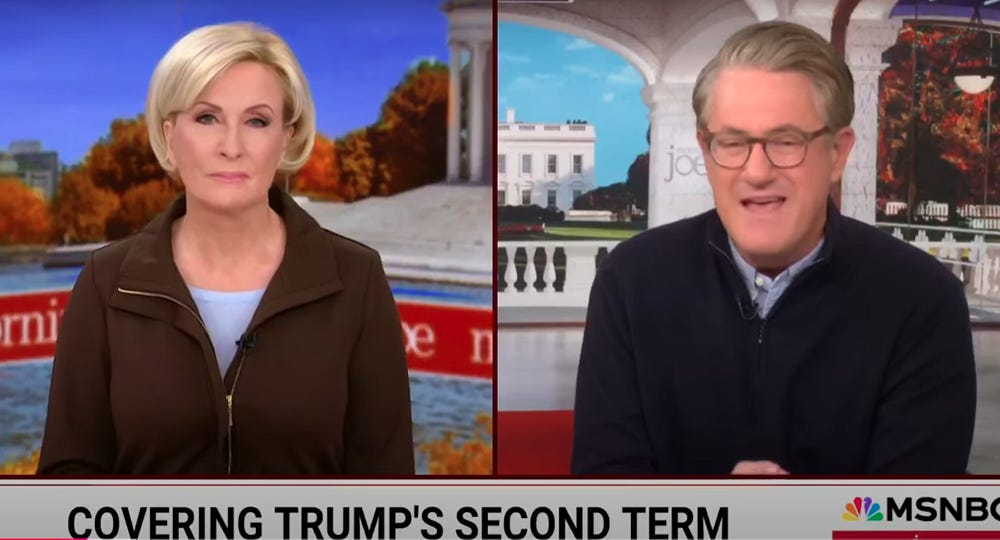The Morning Digest is compiled by David Nir, Jeff Singer, and Stephen Wolf, with additional contributions from the Daily Kos Elections team.
Subscribe to The Downballot, our weekly podcast
The Daily Kos Elections team will be taking Friday off for the Labor Day weekend. The Live Digest will be back on Tuesday, and the Morning Digest will return on Wednesday. Have a great holiday!
Leading Off
● Primary Night: Tuesday is primary night for two vacant House seats on opposite ends of the country: Rhode Island’s 1st District, which Democrat David Cicilline departed at the end of May, and Utah’s 2nd District, where Republican Chris Stewart remains in office but triggered a special election by notifying Gov. Spencer Cox in June that he would “irrevocably resign” effective the evening of Sept. 15.
Given the respective lean of each district—Joe Biden took Rhode Island’s 1st 64-35, while Donald Trump carried Utah’s 2nd 57-40—the primaries will likely be dispositive in both cases. It’ll still be a little while, though, before either state sends a new member to Congress: The general election in Rhode Island will take place on Nov. 7, while Utah’s is set for Nov. 21. Below, we preview both contests.
● RI-01: A total of 12 Democrats are on the ballot to replace Cicilline, though one of them, businessman Don Carlson, dropped out over the weekend amid a scandal.
The main contenders for this dark blue constituency are former Biden administration official Gabe Amo, state Sen. Sandra Cano, Lt. Gov. Sabina Matos, and former state Rep. Aaron Regunberg. Also running are Navy veteran Walter Berbrick, state Rep. Stephen Casey, Providence City Councilman John Goncalves, and state Sen. Ana Quezada.
Amo, Cano, Goncalves, Matos, and Quezada would each have the chance to make history as the first person of color to represent the Ocean State in Congress.
The only poll we’ve seen in the last month was a mid-August internal for Amo that showed Regunberg leading him 28-19 as Matos and Cano took 11{dec8eed80f8408bfe0c8cb968907362b371b4140b1eb4f4e531a2b1c1a9556e5} each. The survey, which found Carlson taking 8{dec8eed80f8408bfe0c8cb968907362b371b4140b1eb4f4e531a2b1c1a9556e5}, did not ask about the rest of the field by name and instead found 8{dec8eed80f8408bfe0c8cb968907362b371b4140b1eb4f4e531a2b1c1a9556e5} opting for “another candidate not mentioned here.” However, there are further indications that Regunberg, who touts endorsements from prominent national progressives like Vermont Sen. Bernie Sanders and New York Rep. Alexandria Ocasio-Cortez, is the frontrunner going into Tuesday.
Regunberg, who is the nephew of Illinois Rep. Brad Schneider, was on the receiving end of more attacks than any of his opponents at Tuesday’s debate. A group called Committee for a Better Rhode Island followed up days later by making Regunberg its target in the first negative TV ad of the entire race, though WPRI says it’s only putting $81,000 behind its offensive. The spot attacks the candidate over his May declaration that he would have voted against Biden’s debt ceiling deal with Speaker Kevin McCarthy; Regunberg said at Tuesday’s debate that he’d have supported the agreement if he’d been the decisive vote.
Amo, for his part, picked up an endorsement Thursday from former Rep. Patrick Kennedy, who represented prior versions of this seat from 1995 to 2011 but has since moved out of the state. Kennedy, who is the son of the late Massachusetts Sen. Ted Kennedy, also appeared in a commercial for Amo and touted his work in the Biden administration.
Matos, meanwhile, looked like the frontrunner until July, when multiple local election boards asked the police to probe allegations that her campaign had turned in forged signatures in order to get on the ballot. State election authorities have reaffirmed that the lieutenant governor submitted a sufficient number of valid petitions, but the state attorney general’s office is continuing to investigate the matter. Matos’ allies at EMILY’s List and the Congressional Hispanic Caucus remain in her corner, however, as she’s benefited from more outside spending than any of her rivals.
Cano has trailed her opponents in fundraising and hasn’t received any third-party help, but she has several influential labor groups on her side. The rest of the field has raised little money and hasn’t picked up many notable endorsements.
● UT-02: The GOP contest to succeed Stewart is a three-way battle between Celeste Maloy, the congressman’s former legal counsel; former state Rep. Becky Edwards; and former RNC member Bruce Hough. The winner will face Democratic state Sen. Kathleen Riebe, who has no intra-party opposition, for a seat located in central and western Salt Lake City and southwestern Utah.
Maloy, who has Stewart’s support, earned her spot on the primary ballot by winning the support of delegates at the GOP’s convention in June. Just days later, the Salt Lake Tribune reported that she’d last voted in Utah in 2018 before taking a job in D.C. to work for Stewart, which led election officials to move her voter registration to inactive status. Maloy’s detractors unsuccessfully argued in court that she’d violated state law because she only became an active voter again after she filed to run for Congress, but they’ve continued working to portray her as an interloper.
Edwards, meanwhile, infuriated conservatives in 2020 when she endorsed Joe Biden (she has since expressed “regret”), a move she followed by waging a failed primary challenge to far-right Sen. Mike Lee in which she portrayed herself as a more pragmatic option. However, the one poll anyone has released finds voters may not be holding it against her: A mid-August survey from Dan Jones & Associates showed Edwards beating Hough 32-11, with Maloy at 9{dec8eed80f8408bfe0c8cb968907362b371b4140b1eb4f4e531a2b1c1a9556e5}. However, half of respondents were undecided, so if this survey is accurate, the race remains up for grabs.
Unlike in Rhode Island, there has been little outside activity in this contest. Hough and Edwards had each spent about $450,000 as of mid-August, while Maloy had spent about half that.
Senate
● AZ-Sen: Multiple media outlets reported Wednesday that Blake Masters, who was one of the GOP’s very worst Senate nominees last cycle, has decided to try again this year, and Politico says his declaration could come as soon as next week. Masters would join Pinal County Sheriff Mark Lamb in the primary for the seat held by Kyrsten Sinema, a Democrat-turned-independent who still hasn’t revealed her 2024 plans.
The Republican that everyone’s waiting on, though, is election denier Kari Lake, who Axios previously reported plans to launch in October. She and Masters campaigned together last year by urging voters to back “Lake and Blake,” but their relationship is anything but friendly these days. Lake on Sunday responded to the news that Masters would be talking to a local conservative activist by tweeting, “I hope you bring up election fraud, and Election crime. You’ve been quite silent.”
● MI-Sen: Following a new report on Thursday from the Detroit News that former Republican Rep. Peter Meijer had formed an exploratory committee ahead of a possible bid for Michigan’s open Senate seat next year, the ex-congressman released a statement once again confirming that he’s “considering running.” The development comes as another former member of Congress, Mike Rogers, is also reportedly preparing to join the GOP primary. Democrats have a multi-way primary of their own, but Rep. Elissa Slotkin has raised far more money and earned more high-profile endorsements than the rest of the field.
● MT-Sen: Republican pollster J.L. Partners has shared a recent poll with Semafor that tests next year’s primary and general election, though there’s no indication about who, if anyone, was their client. The GOP primary portion finds far-right Rep. Matt Rosendale with a wide 52-21 edge over wealthy businessman Tim Sheehy, who is the favorite of establishment Republicans and the NRSC. That result is only modestly better for Sheehy than a June survey from Democratic firm Public Policy Polling that had found Rosendale up 64-10 right before Sheehy kicked off his campaign.
While Rosendale has yet to formally announce his own campaign, he’s recently been acting like he’s going to run, and Democrats likely would prefer to face him given that he already lost to Democratic Sen. Jon Tester when this seat was last up in 2018. However, J.L. Partners’ poll finds little difference between the two Republicans in a hypothetical 2024 general election: Rosendale leads Tester 46-43 while Sheehy beats the incumbent 46-42. Polling has been very limited here so far, but those numbers are very similar to Rosendale’s 46-41 edge over Tester that GOP pollster OnMessage Inc. found in February.
Governors
● KY-Gov: Pluribus News reports that Democratic incumbent Andy Beshear and his allies have reserved $17.3 million in TV time for the remainder of the campaign, compared to $5 million from Republican Daniel Cameron and his backers.
● LA-Gov: Conservative independent Hunter Lundy has self-funded more than $1 million to air his first TV ad, which is a minute-long spot that highlights his working-class upbringing and emphasizes his Christian faith. Lundy also calls for raising the minimum wage, investing in education, and holding responsible the “people who wreck our air and water.”
Ballot Measures
● MO Ballot: Missouri voters could see dueling ballot measures on abortion rights next year after a new group submitted six petitions that would create several exceptions to the state’s near-total ban on the procedure, including in cases of rape or fatal fetal abnormalities. One version of the petition would also allow abortion through 12 weeks of pregnancy, while two others would permit it until fetal viability, which is generally viewed as beginning at around 23 to 24 weeks.
However, the proposals, which were put forward by a former Republican political operative and artist named Jamie Corley, have earned the ire of the state’s Planned Parenthood affiliate, particularly for their focus on exceptions to Missouri’s ban. Yamelsie Rodríguez, the president and CEO of Planned Parenthood of the St. Louis Region and Southwest Missouri, said in a statement that Corley’s approach “will continue to harm Missourians” and warned that “exceptions have never provided meaningful access.”
Reproductive rights activists have been working to qualify their own measure for the 2024 ballot after filing 11 different petitions earlier this year, all of which are more expansive than Corley’s proposals. (Proponents will ultimately settle on a single plan.) However, the local Planned Parenthood has taken exception to this push, too: Politico reported in April that the organization had pulled out of the coalition behind the effort, called Missourians for Constitutional Freedom, because most of its petitions also impose a fetal viability limit.
Corley is arguing that her more restrictive petitions have a better chance of becoming law. “I have respect for other organizations that are working in this realm,” she told KCUR. But, she added, “I would say I think we have a much different view and assessment about what is ultimately passable in Missouri.”
Missourians for Constitutional Freedom is also in the midst of a lawsuit against Republican Secretary of State Jay Ashcroft over the summary language he drafted for six of the group’s petitions.
Ashcroft, who is running for governor, wrote that the measures would “allow for dangerous, unregulated, and unrestricted abortions, from conception to live birth, without requiring a medical license or potentially being subject to medical malpractice.” The ACLU of Missouri, which is leading the challenge, charged that the descriptions are “misleading” and prejudicial.” A state court will hold a trial on the dispute on Sept. 11, with the judge promising to deliver a ruling “pretty quick.”
Grab Bag
● Where Are They Now?: Former Maricopa County Sheriff Joe Arpaio, who was one of the most powerful Republicans in Arizona just seven years ago, announced Wednesday that he’ll run again in 2024 for mayor of the Phoenix suburb of Fountain Hills, the 24,000-person community where incumbent Ginny Dickey beat him 51-49 last year. Arpaio, who is 91, previously lost his 2016 reelection campaign for sheriff, his 2018 primary for U.S. Senate, and the 2020 primary to regain the sheriff’s office.









